It happened suddenly, as if someone had just looped a belt around him and yanked him back hard, snatching his breath away.
That’s what Todd Henderson, 52, remembers of that day as he sat behind the steering wheel of his truck on a busy Grand Rapids causeway.
After that, the memory fades.
Later, Todd learned what happened: a grand mal seizure.
It had been a workday. His colleague and friend who drove in a second truck just ahead of him saw the whole thing. Todd’s truck had veered off the road and stopped against a wall. His friend quickly turned his own truck around to double back.
By the time he reached Todd, he found him unconscious.
When police arrived they searched Todd’s phone for an emergency contact. They called his wife, Susan, but couldn’t reach her. They reached his son, who asked them to take Todd to Spectrum Health Butterworth Hospital.
South of Grand Rapids, in Allegan County, Michigan, Todd’s wife had put her phone on vibrate.
She rarely did this, but it had been a special day and she didn’t want to be interrupted. She attended a press conference announcing a $100,000 donation that her employer, Allegan County United Way, received from Gun Lake Casino to fund the United Way’s Imagination Library, a youth literacy program.
When Susan turned her phone back on, she saw 17 missed calls.
Her heart sank.
A flurry of calls like that could only bring bad news.
Improvement projects
When Susan called her husband, he answered.
“He said he had been in an accident and was at the emergency department at Butterworth,” Susan said. “When I got there, they were already doing a CT scan on Todd. At first, they thought he may have had a stroke, but there was no sign of paralysis.”
A CT scan and an MRI showed a mass in Todd’s brain. The mass, about the size of a golf ball, had taken hold near the area that controls speech.
Hayden Boyce, MD, FAANS, a Spectrum Health neurosurgeon, wasted no time getting Todd into surgery. He performed an awake craniotomy, using brain-mapping techniques while the patient remains awake.
“I have memory lapses now, but I remember that surgery vividly,” Todd said. “Dr. Boyce asked me to say different words and he asked me to purse my lips the way that you do when you say certain words.”
Guided by Todd’s ability to speak correctly, Dr. Boyce excised the tumor and sent the mass to a lab, confirming what he already knew.
“When Dr. Boyce said the word cancer, I made him say it twice before I could take it in,” Susan said.
Doctors diagnosed Todd with Grade 3 anaplastic astrocytoma, an incurable brain tumor that, on average, gives patients three to five years to live.
Wendy Sherman, MD, medical director of neuro-oncology at Spectrum Health, oversaw Todd’s care.
“We found that Todd had an IDH mutation,” Dr. Sherman said. “That’s isocitrate dehydrogenase—a mutated enzyme that can sometimes help people do better with this type of diagnosis.”
Amid the dark clouds, then, came a silver lining.
“Dr. Sherman explained to us that the IDH is a better scenario,” Todd said. “I wanted to know. Yes, I fixated on all that for a while, but I wanted to know. When you’re told you have five years, you start thinking how you want to live.”
Three days after surgery, Todd and his wife returned home to resume their lives. Susan remembers placing a piece of paper and a pen in front of her husband.
Todd would have to begin a regimen of chemotherapy and radiation, but among it all Susan wanted him to write his bucket list—all the things he wanted to do or see.
“And I told him they better not be home improvement projects,” she said, laughing.
Todd looked back at her and grinned. “All I wanted to do was get back to work,” he said.
The two, married since 1989, know each other well.
And still, before long Todd found himself able to work again. At the heating and cooling company where he’s worked for 30 years, he considers his colleagues another family.
Todd’s boss agreed to let him return to office work, but that didn’t last long before Todd found his way back into the field, installing and repairing furnaces and AC units.
The Hendersons have kept at the bucket list. So far, it’s up to seven items.
During their marriage, the Hendersons had visited all 48 continental states with their children. They plan to yet visit Hawaii and Alaska to round out their bucket list.
Robot bellies full of books
When Todd begins to talk about tiling the floor in the house as a bucket item, Susan shakes her head and mouths, “Nope.”
There’s only one building project they do together.
The day Todd’s truck veered off the road and crashed, Susan had been celebrating the funding of literary efforts at Allegan County United Way. Getting books into the hands of children remains a cause close to her heart.
When Todd’s health allowed it, Susan talked to him about a project in their Wayland, Michigan, community and in the nearby towns of Allegan and Plainwell.
They could build free libraries and install them in random places.
Todd, always itching to work on something—particularly something that helps others—immediately saw the project’s appeal. He had access to all kinds of odd parts and pieces at his job.
At United Way, Susan had access to metal newspaper stands, the old-school kind where you drop in a few coins, pull the handle and reach inside to grab a stack of newspapers.
They inspired creativity in Todd.
With a bit of pipe here, some metal plates there and a couple of shiny foil ducts attached arm-like to the sides—hey, it looked like a robot!
Just the thing to attract a child.
But rather than old newspapers, the robot’s belly would hold a stack of books people could take for free. Or if preferred, they could donate to the collection—a bit of literary sustenance, delivered from a robot’s belly to the random person’s brain.
And so Todd got busy building robots. He likes doing things for others. It gives meaning to life.
And, whatever the prognosis, he’s feeling pretty good these days.
Follow-up appointments with his doctors and regular MRIs show no new growth or progression of the brain tumor.
“You hear your doctor say those words—you have years to live,” Todd said. “But we’re churchgoing people. You have to pray. You have to have a positive attitude. You have to laugh, and you have to hope.”
Susan amplified that.
“Pray for a miracle,” she said. “And hope.”
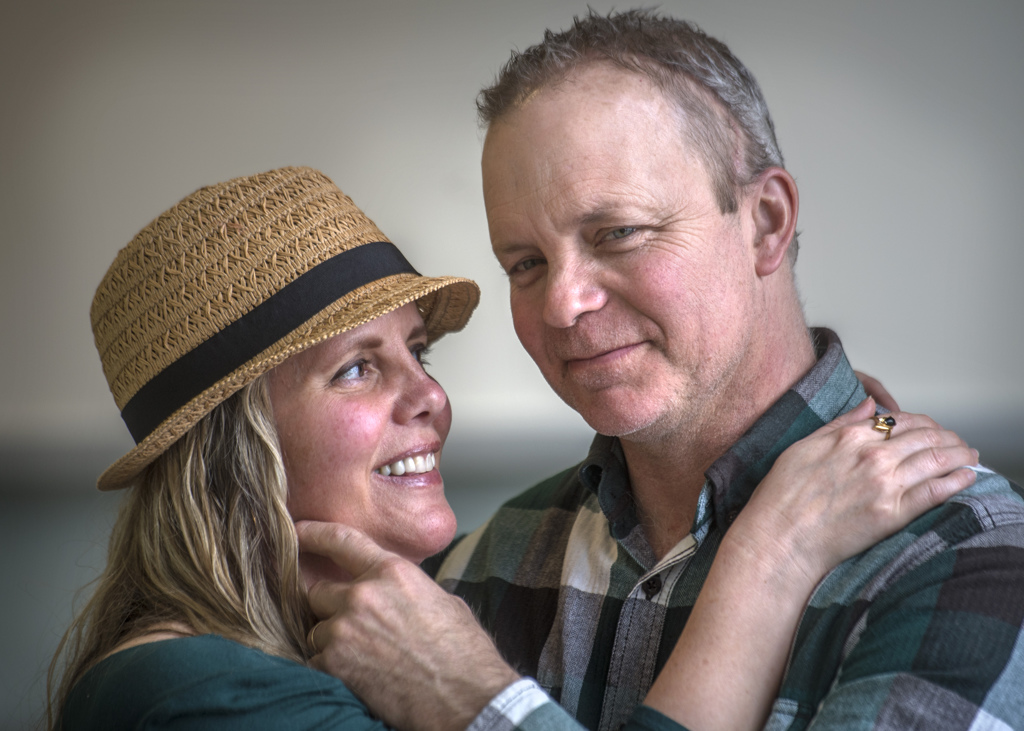
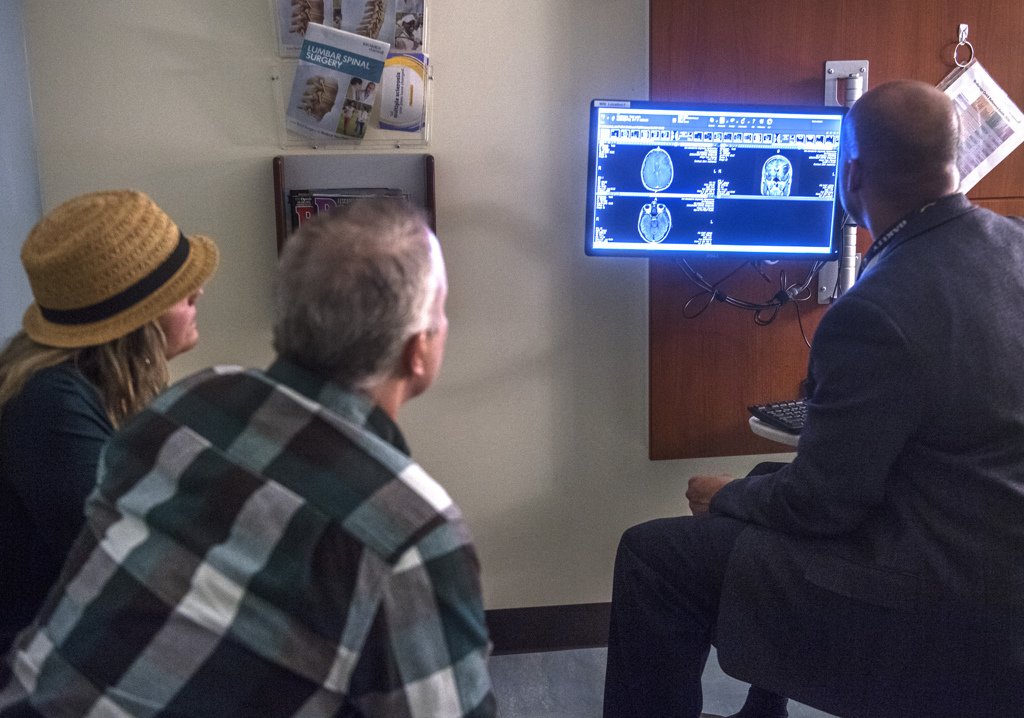
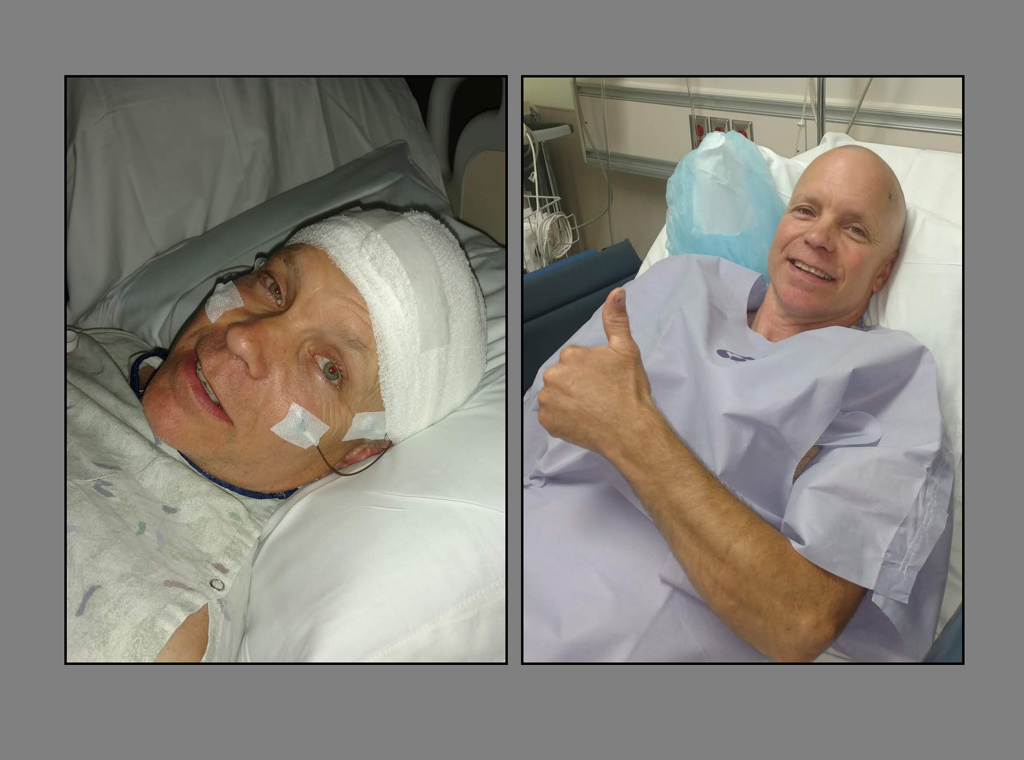
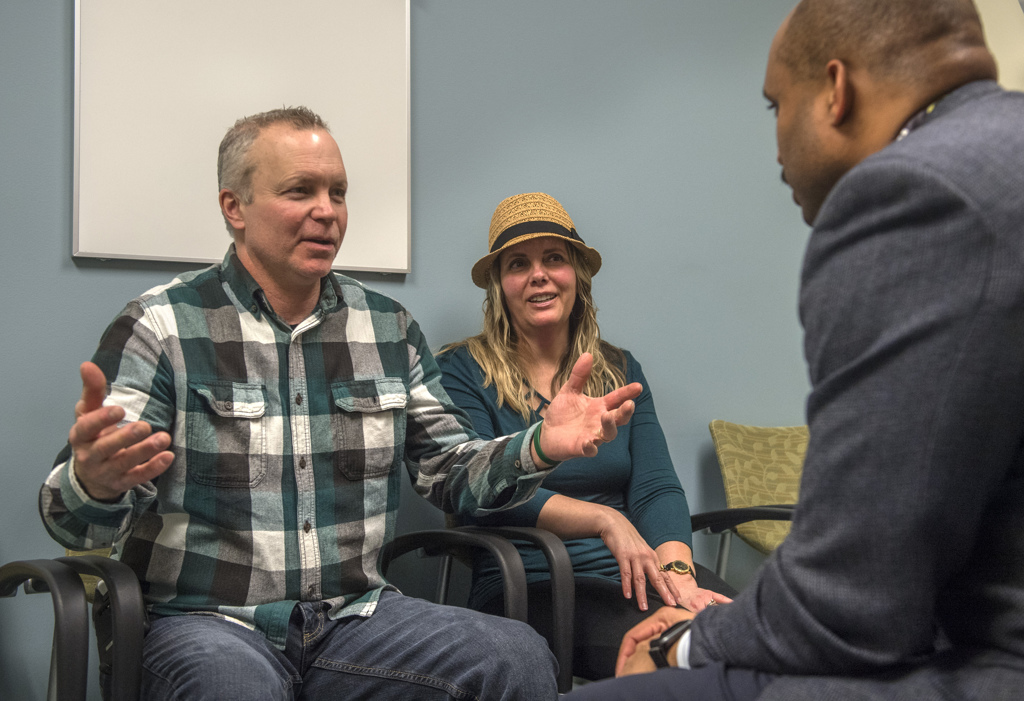
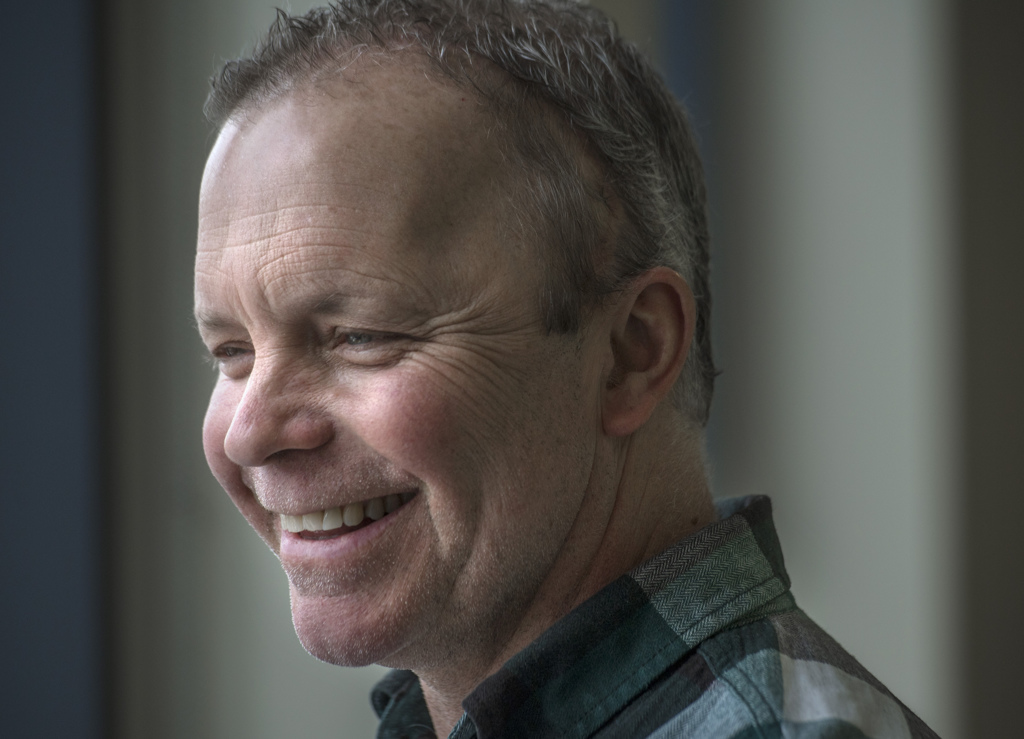
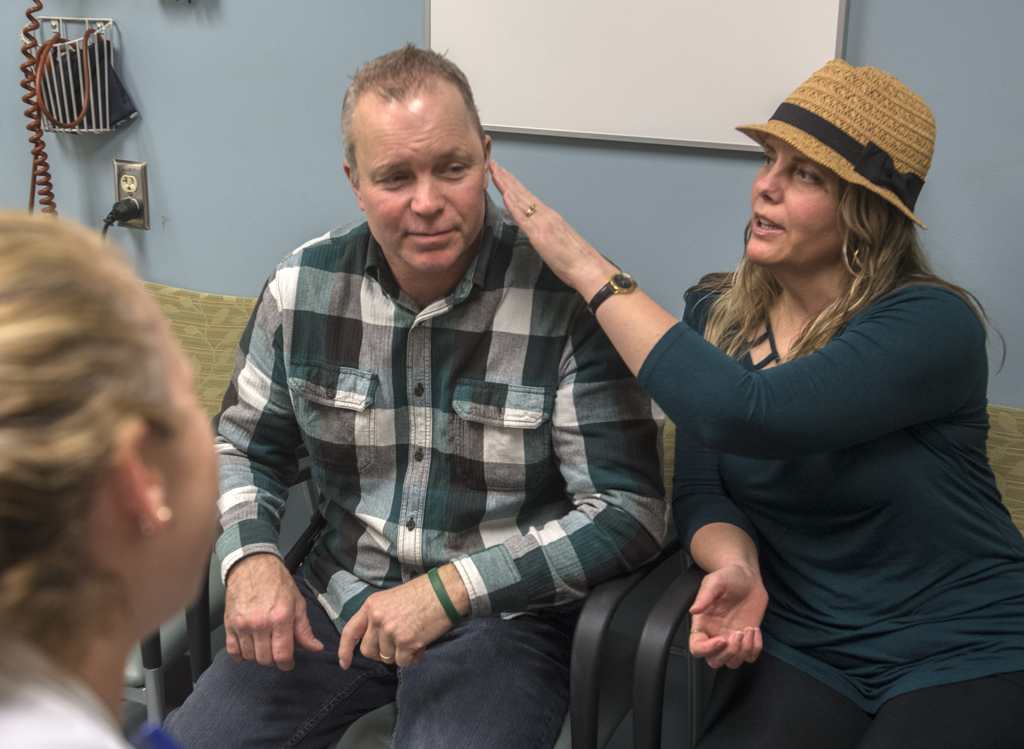
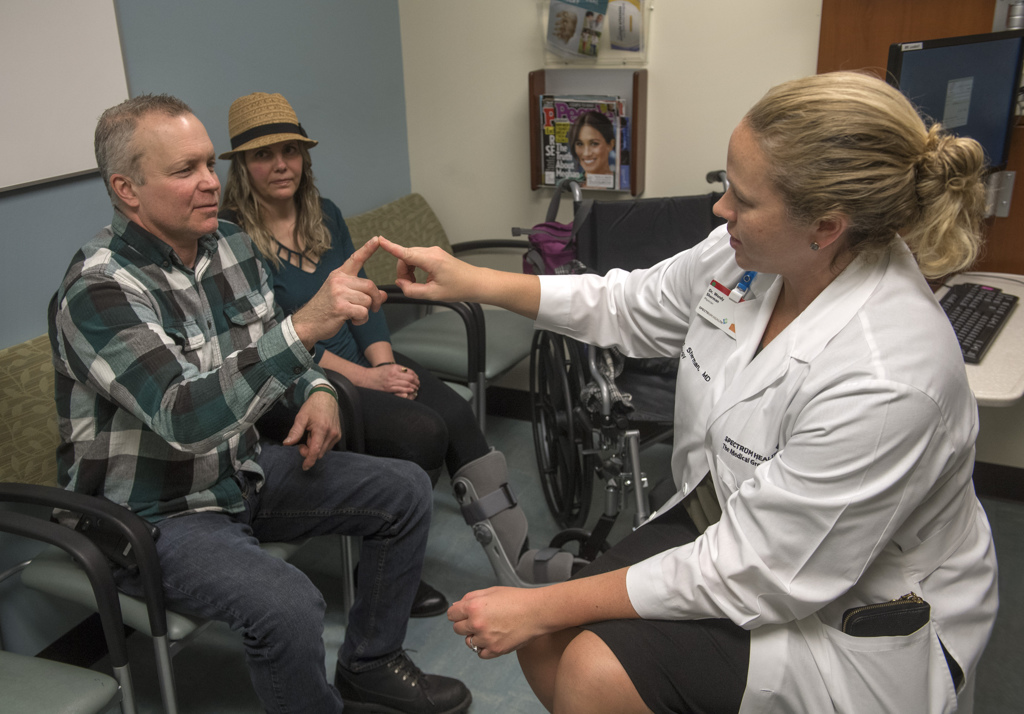
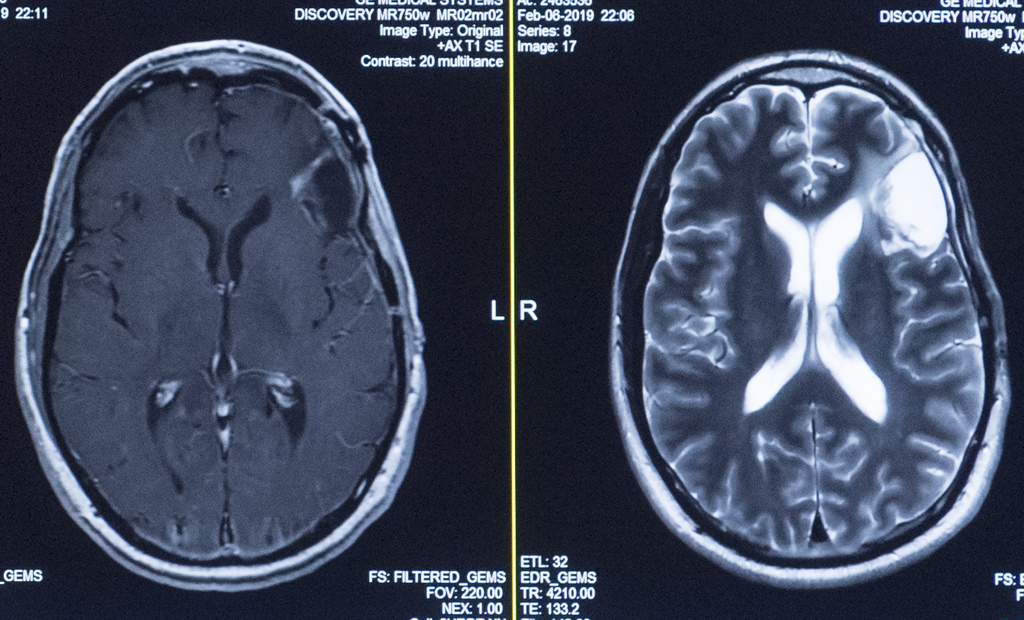
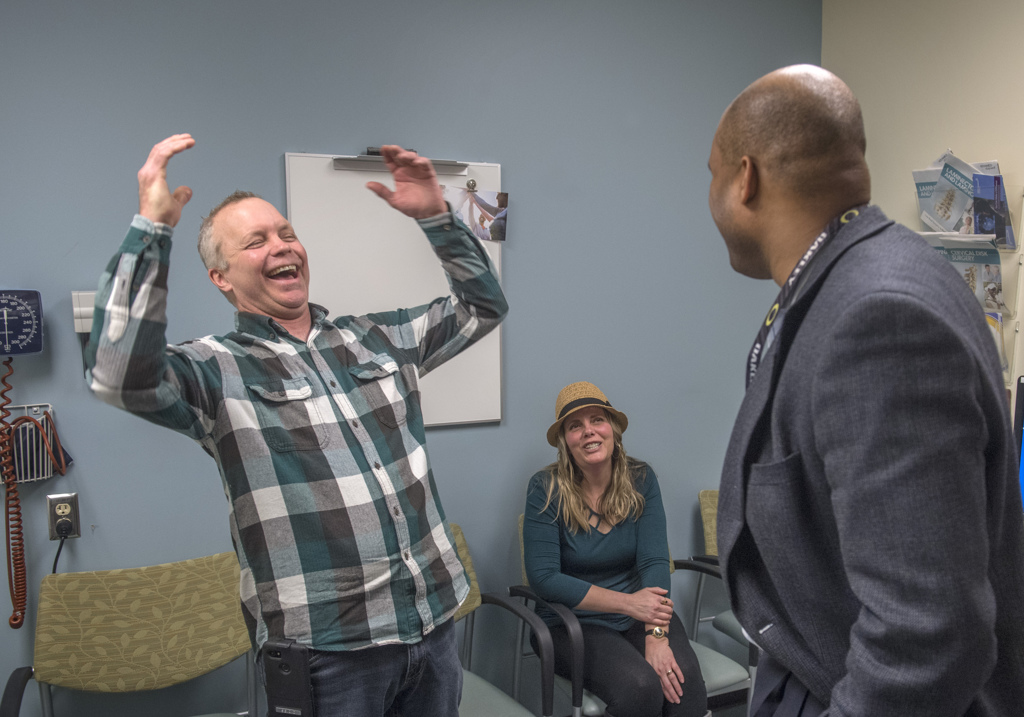
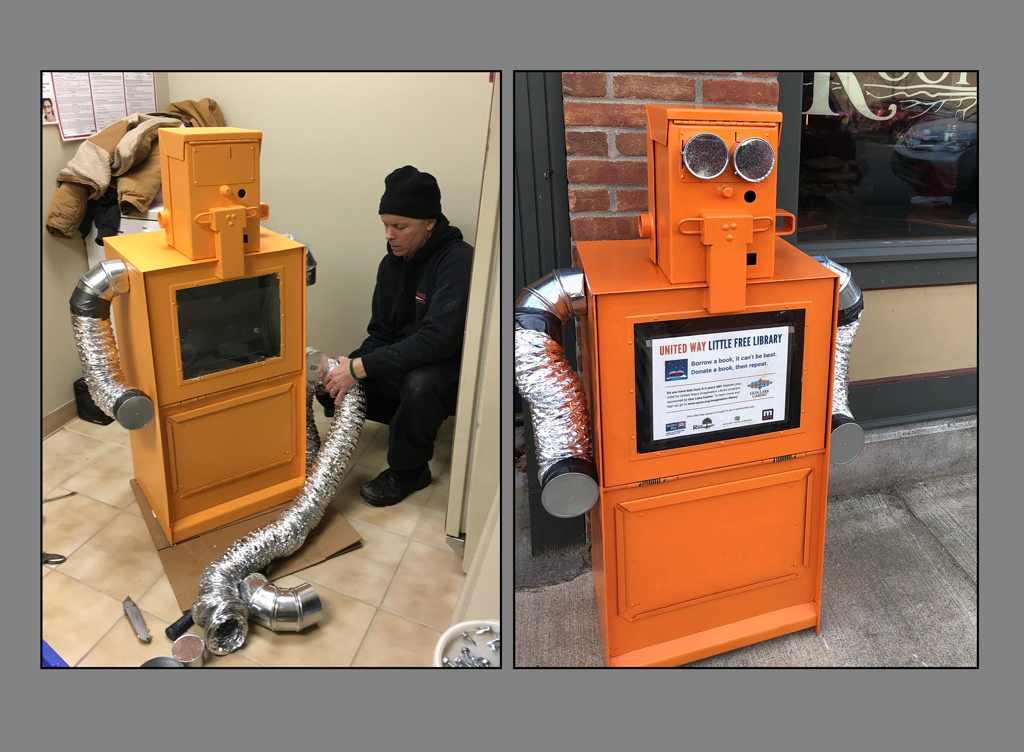
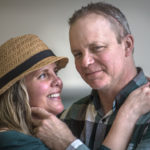
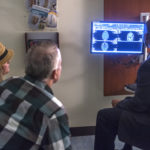
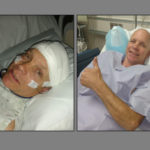
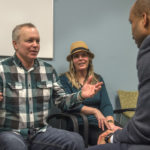
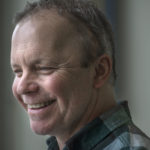
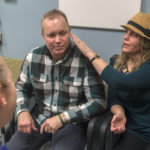
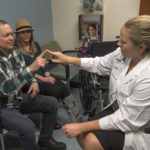



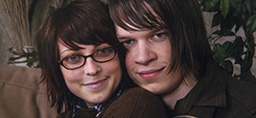 /a>
/a>
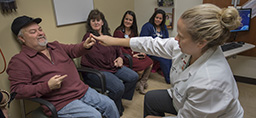 /a>
/a>
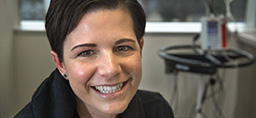 /a>
/a>
WOW!! What an amazing story!
That moment comes….
And you either roll over and play dead…
Or
You roll over and play alive.
He. They. Chose life. That’s a powerful message. And told so very well.
Thank you, Ms. Aistars.
I’ve worked with Todd for years.Hes always been a positive happy co worker. Regardless of the number of years Todd and Susan will live them to the fullest.Todd humbles us all.
Thank you, Diane, for your kind comment and for being a Health Beat reader! Todd is indeed a remarkable man.
Thank YOU, Thomas Bowen! It was such an honor to meet Todd and Susan, to sit together with them as they shared their story with me. There would be reason to cry, one thinks, yet we laughed together that evening as they told me about their journey from that day of the accident to this. I loved their love for each other, and I loved their positive attitude and strong faith. If anyone gets a miracle, I imagine Todd will get his.
Loved reading about your great relationshil, and laughter, and Todd’s projects, and your bucket list, and prayers, for your future. Seems, like you are living life, and enjoying life!
I agree, Jane. We can all learn from the Hendersons’ example.